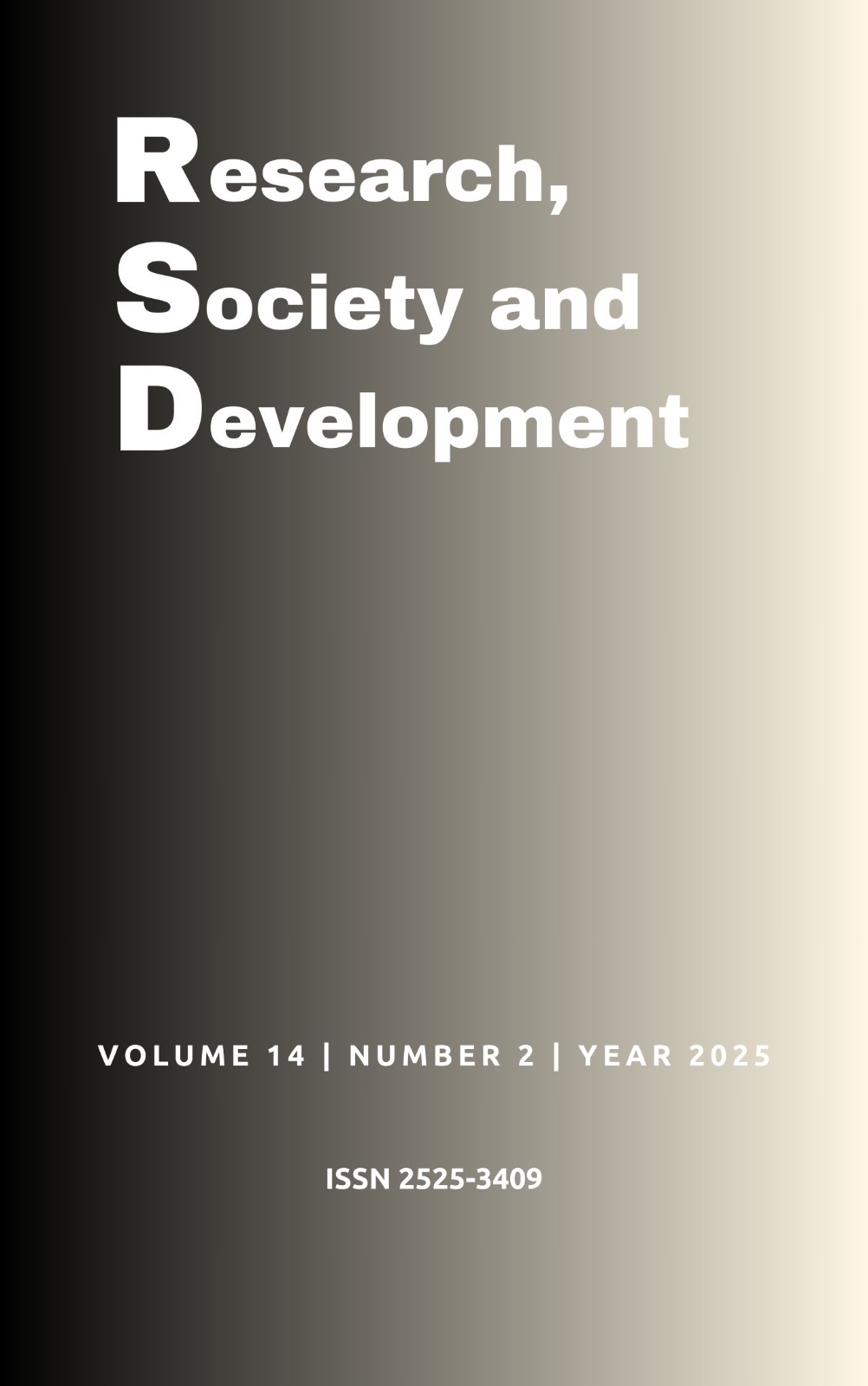Limits and advances in pedagogical practice: Methods and resources in the teaching of Mathematics in Higher Education
DOI:
https://doi.org/10.33448/rsd-v14i2.48298Keywords:
Teaching, Higher Education, Pedagogical Strategies, Mathematics, Teacher Training.Abstract
This article investigates the limits and advances in the pedagogical practice of mathematics teaching in higher education, based on qualitative research carried out in a university center in Santa Catarina. The objective of the study was to understand teachers' perceptions about the challenges of teaching mathematics and to identify advances in the supply of pedagogical and technological resources. The methodology adopted was qualitative, with semi-structured interviews applied to professors with a bachelor’s degree in administration and accounting sciences, whose data were analyzed according to Bardin's content analysis approach. The results reveal that the main challenges of students include deficiencies in basic mathematical content, difficulties in interpretation and mathematical anxiety. The teachers, on the other hand, highlight the need for continuous pedagogical improvement, adaptation to different learning profiles and the search for more dynamic didactic strategies. Regarding advances, the provisions are a greater use of educational technologies and a growing appreciation of active methodologies, without mention of pedagogical or didactic advances. In the debate with the authors, Zabalza, Masetto, Valdeleón, Acosta and Ramírez, Chevellard, Shulmann, Hill. Ball and Schiling, Carrillo-Yañez, Climent et al., it is concluded that the professionalization of teaching and the systematization of practices are essential to overcome the challenges and improve the quality of mathematics teaching.
References
Ball, D. L., & Bass, H. (2009). With an Eye on the Mathematical Horizon: Knowing Mathematics. 43º Jahrestagung für Didaktik der Mathematik, Oldenburg, Alemanha. Acesso em 20 de 07 de 2021, https://eldorado.tu-dortmund.de/bitstream/2003/31305/1/003.pdf
Bardin, L. (1977). Análise de Conteúdo. Lisboa: Edições 70.
Barg, G., Cuadros, A., Hoyos, S., & Coord. (2019). Neurocognición y Aprendizaje. (F. Díaz, Ed.) Montevideo: Grupo Magro Editores.
BRASIL. (2023). Programa Internacional de Avaliação de Estudantes PISA 2022 | RESULTADOS. Instituto Nacional de Estudos e Pesquisas Educacionais Anísio Teixeira (Inep). INEP. Acesso em 06 de 02 de 2025, /download.inep.gov.br/acoes_internacionais/pisa/resultados/2022/apresentacao_pisa_2022_brazil.pdf
Carrillo-Yañez, J., Climent, N., Montes, M., Contreras, L., Flores-Medrano, E., Escudero-Ávila, D., . . . Muñoz-Catalán, M. (2018). The Mathematics
Teacher’s Specialised Knowledge (MTSK) model. Research in Mathematics Education, 20(3), 236-253. doi: https://doi.org/10.1080/14794802.2018.1479981
Chevallard, Y. (1999). L´analyse des pratiques enseignantes en théorie anthropologique du didactique. Recherches en Didactique des Mathématiques Grenoble: La Pensée SauvageÉditions, 19, 221-265.
Chevallard, Y. (2000). La transposición didactica: Del saber sabio al saber enseñado. Buenos Aires: Aique Grupo Editor S.A.
CNN, B. (13 de 11 de 2024). Ansiedade com matemática cresce entre alunos brasileiros, aponta PISA . CNN Brasil.
Consenza, R. M., & Guerra, L. B. (2011). Neurociência e Educação - Como o cérebro aprende. Porto Alegre: Artmed.
Flick, U. (2009). Introdução à pesquisa qualitativa (3ª edArtmed Editora S.A.
Gil, A. C. (2008). Métodos e Técnicas de Pesquisa Social (6ª ed.). Editora Atlas S/A.
Hill, H. C., Ball, D. L., & Schiling, S. G. (2008). Unpacking Pedagogical Content Knowledge: Conceptualizing and measuring teacher's topic-specific knowledge of students. Journal for Research in Matematics Education, 39(4), 372-400. https://pubs.nctm.org/view/journals/jrme/39/4/article-p372.xml
Masetto, M. T. (2012). Competência pedagógica do professor universitário. Editora Summus.
Morsanyi, K., Mammarella, I., Szücs , D., Tomasetto, C., Primi, C., & Maloney, E. (janeiro de 2017). Mathematical and Statistics Anxiety: Educational, Social, Developmental and Cognitive Perspectives. Frontiers in Psychology, 196.
OCDE, O. e. (2016). Brasil no PISA 205: análises e reflexões sobre o desempenho dos estudantes brasileiros. Fundação Santillana, São Paulo.
Ryan, M. D. (2019). An investigation into the extent and derivation of mathematics anxiety among mature students in Ireland. Tese (Doutorado em filosofia) University of Limerick, Limerick.
Shulman, L. S. (fev de 1986). Those Who Understand: Knowledge Growth in Teaching. Educational Researcher, 15, 4-14. https://www.jstor.org/stable/1175860
Valdeleón, W. A., Acosta, J., & Ramírez, M. (2017). Competencias docentes para la educación superior en la sociedad del conocimiento en América Latina. Bogotá: Ediciones Unisalle.
Veselka, M. C. (2016). Mathematics anxiety and attitudes towards mathematics in adult developmental learners: an exploratory examination of the relationship between mathematics anxiety, attitudes towards mathematics, and successful adult developmental learners. Dissertação (Mestrado em artes) Baylor University, Baylor.
Zabalza, M. Á. (2007). Competencias docentes del profesorado universitario: Calidad y desarrollo profesional. Madrid: Narcea, S.A. De Ediciones.
Zabalza, M. A. (2007). O ensino universitário: Seu cenário e seus protagonistas. Editora Artmed.
Downloads
Published
Issue
Section
License
Copyright (c) 2025 Rosangela Luçoli; Rosa Maria da Motta Azambuja

This work is licensed under a Creative Commons Attribution 4.0 International License.
Authors who publish with this journal agree to the following terms:
1) Authors retain copyright and grant the journal right of first publication with the work simultaneously licensed under a Creative Commons Attribution License that allows others to share the work with an acknowledgement of the work's authorship and initial publication in this journal.
2) Authors are able to enter into separate, additional contractual arrangements for the non-exclusive distribution of the journal's published version of the work (e.g., post it to an institutional repository or publish it in a book), with an acknowledgement of its initial publication in this journal.
3) Authors are permitted and encouraged to post their work online (e.g., in institutional repositories or on their website) prior to and during the submission process, as it can lead to productive exchanges, as well as earlier and greater citation of published work.


